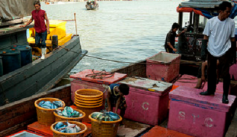Blog
June 18, 2014
The World Bank Risks Dirtying Its Hands in Uzbekistan
June 16, 2014
Discrimination at Radio Free Europe/Radio Liberty
June 13, 2014
25 Cambodian Detainees Released, Charges Remain
May 30, 2014
May Day 2014: Build a United Struggle for a Just Economy, an Egalitarian Society and a Democratic Polity
May 1, 2014
KMU slams death threat vs. Mindanao labor leader
January 30, 2014
Pages
Blog archive
- March 2010 (8)
- February 2010 (9)
- January 2010 (10)
- December 2009 (11)
- November 2009 (13)
- October 2009 (13)
- September 2009 (9)
- August 2009 (8)
- July 2009 (13)
- June 2009 (22)
- ‹ previous
- 13 of 17
- next ›



